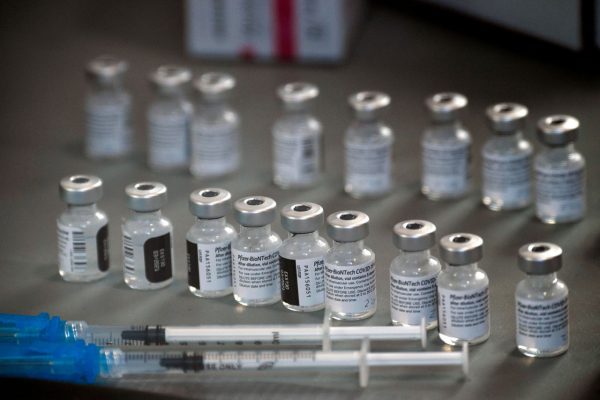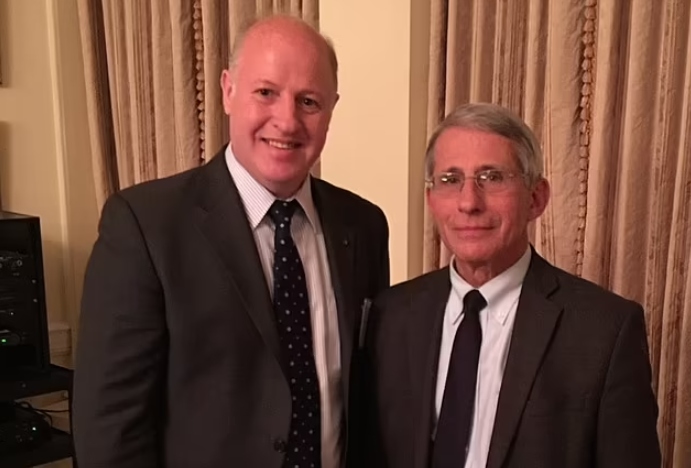Experts advise Biden against signing the WHO "Pandemic Treaty" that enslaves the world under a medical dictatorship
Health and policy experts have been sending feelers to President Joe
Biden not to sign the
World Health Organization's agreement and its 194 member nations on "pandemic prevention, preparedness and response," otherwise called WHO CA+, as the deadline for finalizing "Zero Draft" is just around the corner.
WHO CA+, which the organization preferred not to identify as a treaty but functions as a treaty, will give authority to the WHO once it declares a global health emergency. The deadline for the draft will be in May. It has gone through an opaque process of negotiation and amendments since its inception, from which the public has been essentially excluded, and leaders are expected to sign it this year.
The goals for the United States, as set by the Biden administration, are to "strengthen the global health security architecture, including WHO strengthening, and engage in ongoing negotiations to amend the international health regulations (IHR) and develop a Pandemic Accord." A Dec. 30, 2023, White House fact sheet states, "Global health security is
vital for international security and solidarity, and cannot be achieved alone."
According to the WHO, the agreement, once signed by members, will be legally binding. "Conventions, framework agreements and treaties are all examples of international instruments, which are legal agreements made between countries that are binding," WHO said.
The U.S. Constitution gives the president the authority to enter into treaties, which are agreements between the United States and foreign entities, "provided two-thirds of the Senators present concur." However, it seems unlikely for it to pass the Senate given the vehement opposition of the Republicans. "The United States has a more difficult treaty ratification process than most other member states," said former U.S. ambassador to the United Nations Andrew Bremberg. "So there has been a recent history over the last several decades to develop new international treaties but not call them treaties, to avoid the ratification process."
For Reps. Chris Smith (R-NJ) and Brad Wenstrup (R-OH), this treaty "is another corrupt backdoor for partisan politics in the form of pushing abortion on demand." Commentary fellow for the
Washington Examiner Zachary Faria mirrored the sentiment and wrote in an article that the entire thing is a sham. "The
WHO swallowed Chinese propaganda wholesale, allowing the Wuhan coronavirus (COVID-19) to spread across the world with no warnings for other countries even though Taiwan was already blowing the whistle on the severity of the virus. Meanwhile, China remains a WHO member state with authority over this accord, while Taiwan is still dismissed and ignored by the organization," he said.
He also pointed out that there have been no serious reforms by the WHO to account for such failure and an accord that China gets to have a say in won't do that, either. "This accord will do nothing for global pandemic preparation. It is just another
excuse for the United Nations to impose its power on countries around the world," Faria remarked.
Proponents of the treaty argued that its purpose is to provide funding and authority so that the WHO can improve its pandemic response. "WHO Member States have developed multiple global legally binding agreements, conventions, accords and other types of international instruments to protect and promote people's health, including the WHO Constitution itself, the WHO Framework Convention on Tobacco Control and the International Health Regulations," it said on the website. However, for critics, the drafts they have been able to review thus far are not likely to achieve this goal.
The agreement will just revive ineffective public health mandates
For other people knowledgeable of the matter, the agreement would just give the WHO the power to
initiate lockdowns and mandates for masks, testing and vaccines. Yet data from several countries that followed quite different policies, such as Sweden, Taiwan, Germany and South Korea, show that other approaches were equally, if not more, successful.
There have been reports indicating physicians trying other drugs to combat coronavirus and its symptoms, including hydroxychloroquine and ivermectin. Also, COVID-19 vaccines were proven not risk-free. Evidence surfaced in recent years showing vaccine rates declining in the U.S. because the WHO shut down debate about the risks and limited benefits of the said vaccines. Former White House Chief Medical Advisor Anthony Fauci admitted in his testimony to the House select subcommittee on the pandemic that this heavy-handed approach is likely driving vaccine hesitancy. (Related:
Fauci admits social distancing has no basis; Wuhan lab-leak hypothesis is not conspiracy theory.)
Public health mandates such as lockdowns have also been questioned. The United Kingdom government inquiry is looking into it, but like the WHO it is avoiding most sensitive topics for fear of upsetting China and allowing many ministers to avoid blame for poor policies.
Moreover, Roger Bate, a fellow at the International Center for Law and Economics said that oversight of U.N. bodies, including the WHO, is very weak, and the only real constraint is the threat to withhold funds. However, private actors, such as the Gates Foundation, provide much of its funding for specific projects, so governmental threats of withholding general funds are becoming weaker.
Pandemic.news has more updates on the up-and-coming finalization of the WHO's pandemic treaty.
Sources for this article include:
TheEpochTimes.com
WhiteHouse.gov
WashingtonExaminer.com
GoSkagit.com
 Parler
Parler Gab
Gab










